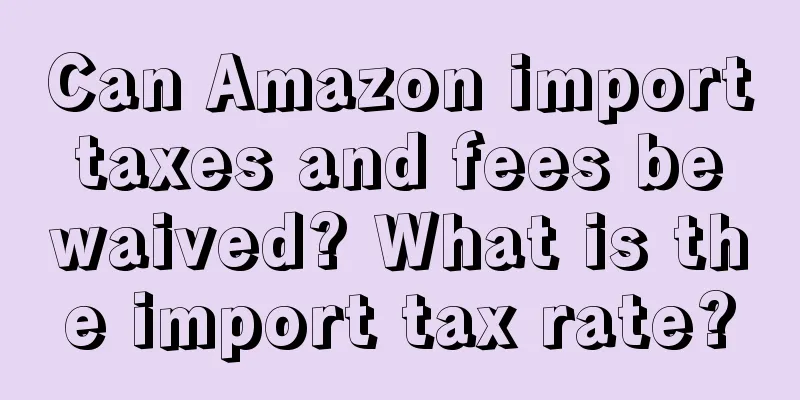Is free traffic really free? Uncovering the cost behind free traffic

Hello everyone, I am Brother Mushroom. I am engaged in the commercial digital marketing industry - digital advertising related work (planning-delivery-modeling and prediction integration) In the six years since I started working in this industry, the question I am asked most often is: How do I get free traffic? Because our daily work is to deal with traffic, so today I want to talk to you about free traffic. What is traffic? This term originally came from the news industry~ The news industry believes that negative emotions and negative information are more attractive and can help to attract viewers’ attention and gain traffic. Today we can simply understand that traffic is to attract users' attention and eyeballs. We divide traffic into paid traffic and free traffic. Paid traffic usually refers to the process of purchasing traffic in a paid form when we engage in digital advertising. Free traffic refers to a way to obtain traffic without spending money, but in fact, free things are never free, it’s just that you don’t see the effort others spend. 1. The hidden cost of free trafficI usually divide the ability to acquire free traffic into three categories of merchants: merchants with brand traffic pools, merchants whose products can attract user attention, and merchants who can exchange benefits with traffic platforms. 1. Merchants with brand traffic poolsIt is easy to understand what a brand traffic pool is. It refers to brands that do brand marketing. They spend a lot of money over a long period of time to shape brand IP and personalities, convey brand image, enhance brand awareness, influence consumer attitudes, and thus affect long-term purchasing decisions. These brands put out TVCs in traditional media, or plant trees on Zhihu or promote products on Xiaohongshu. In fact, the principle is the same: to build a brand traffic pool. The key to good brand marketing is actually to compete on the efficiency of communication between brands and consumers. For example, the competition is about who has the most influential IP, whose brand content can convince users more, whose slogan is sharper and easier to be remembered by users, etc. 2. Merchants whose products can attract users’ attentionRefers to products that can attract user attention, including the product itself, packaging design and service. Some bosses or designers are very subjective and design products or packaging according to their own preferences. Sorry, whoever likes it pays for it. If the boss likes it, he pays for it. So if we want to get free traffic, we should produce products that our target users like. Dig deeper to find out what kind of products and content users like? Users are actually scumbags, they like new things and hate old things, and it is normal to pursue better solutions. Rather than saying that these are metaphysics, it is better to say that these are the rules that govern the operation of human society, which are complex and random. 3. Merchants who can exchange interests with traffic platformsTraffic usually comes from traffic platforms, so let’s break down the traffic platforms and their common business indicators so that we can better understand what traffic is all about. Usually the business indicators of the e-commerce industry: GMV = IPV * CVR * ARPPU Monetization rate indicator: Cost = DAU * IPU * ADload * Show/Send * eCPM It is not difficult to see that the more important operating indicators of traffic platforms are daily active users (DAU) and GMV. Although not fully described here, there are also related indicators such as user LTV. We know that daily activity is an indicator of platform operation, so we can provide corresponding products according to the business type of the platform, such as: e-commerce platforms need commodities, and information content platforms need content products; Let’s dig a little deeper. What does an e-commerce platform need to increase daily active users and achieve higher GMV? Provide good products, products with good prices, new products that cannot be bought elsewhere, products with good delivery services, etc…. You see, Tmall's marketing department has been making Tmall a place for new product sales. New products cannot be bought anywhere else, and they meet people's demand for new things, so new products meet the needs of increasing daily activity. New products are also the strategic differentiation of Tmall itself. If you launch innovative products that have never been launched on Tmall before, you will definitely get free traffic. Similarly, good-priced goods are Pinduoduo's differentiation strategy. If you provide good-priced products on Pinduoduo, you can also get free traffic. Of course, if there are problems with the product quality, you will just shoot yourself in the foot. This kind of provision is beneficial to the platform and can be seen as a mutual achievement with the traffic platform, exchanging interests to obtain free traffic. The above are just examples, and there are many actual ways. Of course, there are some detailed issues that need to be dealt with in the specific operations, such as the product/store cold start problem, etc., which we will not discuss today. So, do you still think that free traffic is free? In fact, in the process of our operation, we need to work hard at every step. When you are still thinking about free traffic, don’t be too confident in your products. You should look back and see whether your products have commercial power and whether the relationship between price and product value has been verified by the market. 2. Why is fake orders useless?In addition to obtaining free traffic, there is also the issue of the scale of free traffic acquisition. There is actually competition in the acquisition of free traffic. In the past, merchants on Tmall would engage in some fake orders in order to deceive the estimation model and obtain more free traffic. When the traffic arrived, but the conversion rate did not meet the indicator requirements, the traffic would drop. In fact, the above order-brushing logic is because the quality of the early estimation model was not that high, and the technology was backward, so there was a situation where merchants were deceived by false orders, and the overall ecology was not good. Now, these situations have improved a lot. First of all, the estimation model is adjusted faster than before, and the risk control of this platform is becoming more and more stringent, resulting in many Douyin merchants finding that false orders are not as effective as Tmall. Moreover, merchants who have been brushing orders will find that their traffic is bottlenecked, and they will look for some so-called black technologies in the market. After trying them all, they find that they are still using the same old tricks and the same old volume. In fact, the reason here is that the market space for commodities is limited. In simple terms, in the game with other merchants, under the condition of stable ROI, their own market share is limited. In my daily work, I find that many merchants seem to have no idea of the market space for their products, which leads them to blindly acquire traffic. In reality, the true value of maximizing one’s own market efficiency cannot be effectively measured in real time, because the competition landscape is different every day, and we can only rely on our understanding of the traffic mechanism to compete with N merchants every day to maximize market efficiency. (Often, this kind of thing is thankless, because how high is high traffic, how good is ROI, after all, human nature is greedy, at this time, if you do it well, no one may know, and if you do it badly, you can just say that today’s traffic is not good, just to get by.) 3. FinallyIn the next issue, I would like to talk to you about how to maximize market efficiency in the current digital advertising industry - two intelligent bidding control methods in bidding advertising (OCPX bidding with constrained bidding and Auto-bid bidding with constrained budget). These two are the most common smart bidding modes on the market, such as: huge ocpm, Pinduoduo ocpx, Taobao direct train ecpc/mcb, Douyin dou+, Xiaohongshu potato chips, Baidu ocpc, Tencent ocpa, Wanxiangtai MSBCB, JD Express ocpx, JD Haitou ecpc, etc. Author: Mushroom Brothers Source: WeChat public account Sanlitun information flow |
Recommend
Is Amazon's payment fast? How to get payment?
After opening a store on Amazon, everyone needs to...
Information filter丨The three steps of marketing strategy: brand strategy, product strategy, and communication strategy
In today's highly competitive market, brand bu...
Decision-making model
This article focuses on the decision-making model ...
How to ship goods to foreigners on eBay? What are the logistics methods on eBay?
When it comes to opening a store on a cross-border...
Imitating skits, Zhihu short articles are popular with "earthy taste"
Nowadays, Zhihu short articles combined with local...
The consultant's true fragrance law
This article reveals what consultants do, industry...
How to select products on Amazon? Tips for Amazon sellers to select products
There is a saying about Amazon product selection t...
Cat meme marketing that goes viral: Struggles and resistance of small and medium-sized enterprises
Cat memes are still an effective way for small and...
How many accounts can be linked to Amazon credit card? Can I use UnionPay card as credit card?
To open a store on Amazon, you need to bind a cred...
Labels VS data indicator system, this article explains it very clearly!
This article introduces the concepts and applicati...
Xiaohongshu notes have low traffic? 5 ways to troubleshoot, 24 types of violations or traffic restrictions, quickly save your notes
What should you do if you encounter a violation of...
How much is the annual salary of an account manager at Alibaba International Station? Is it suitable for this job now?
Everyone knows about the position of Alibaba Inter...
Douyin started selling clothes, quietly launched online, and quickly removed from shelves
Introduction: With the continued popularity of e-c...
What does Amazon's payment collection rate mean? How to improve it
For some friends, Amazon store operation is not si...
Five perspectives on media evolution
From the earliest papyrus to the current Internet,...









